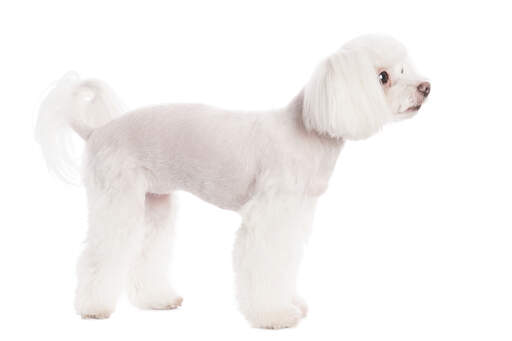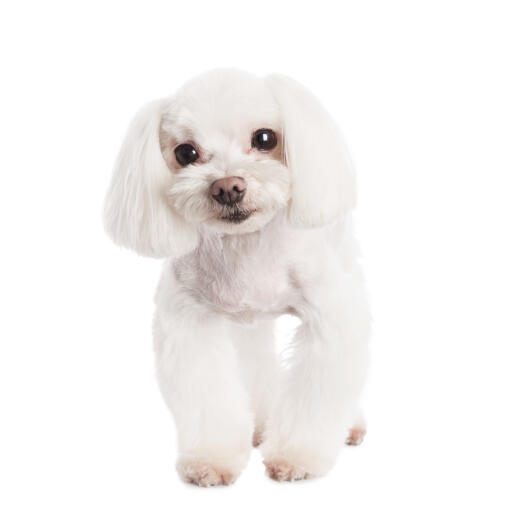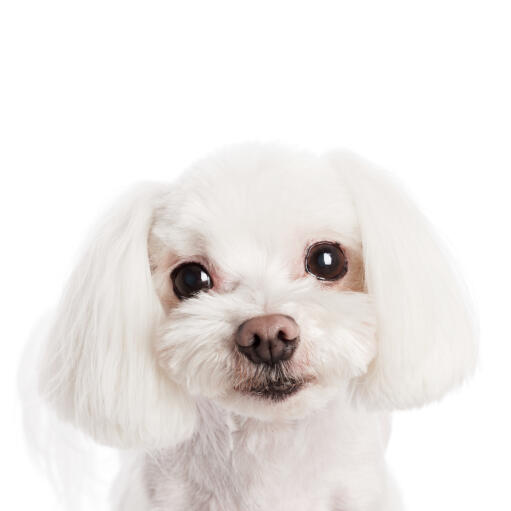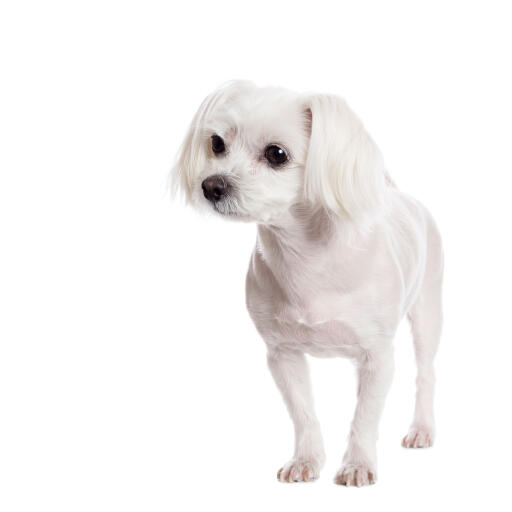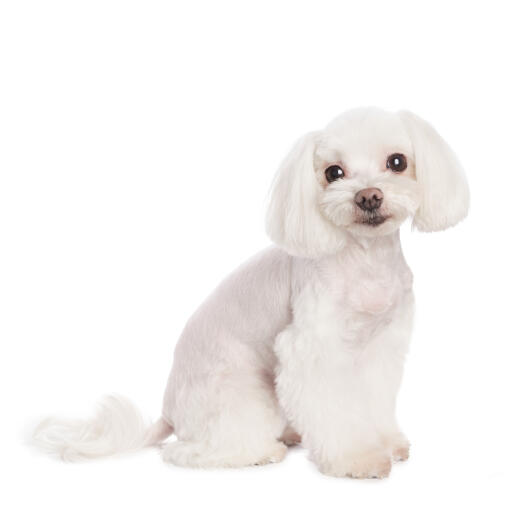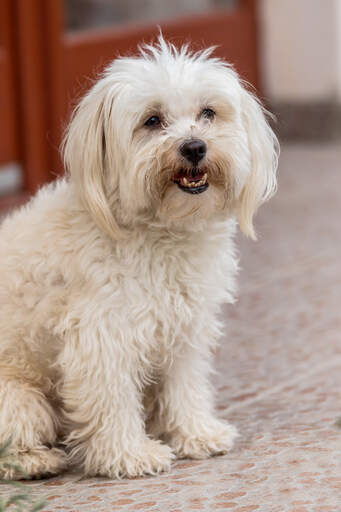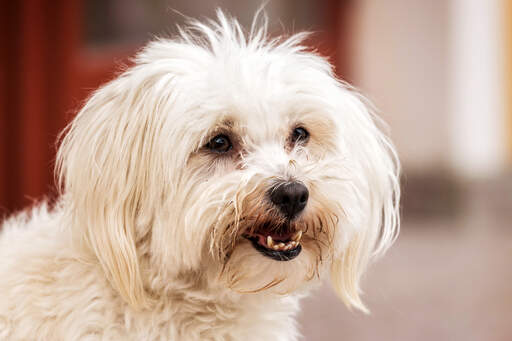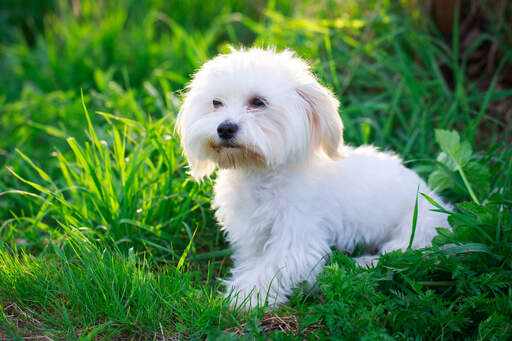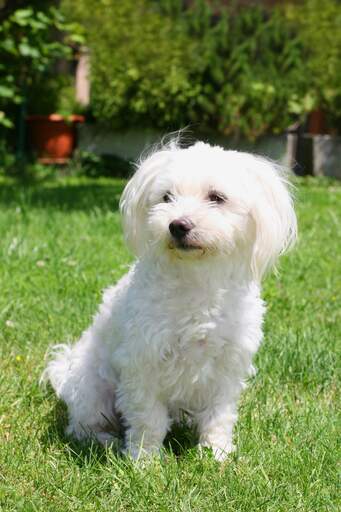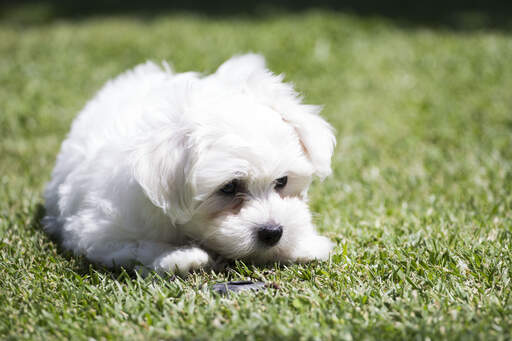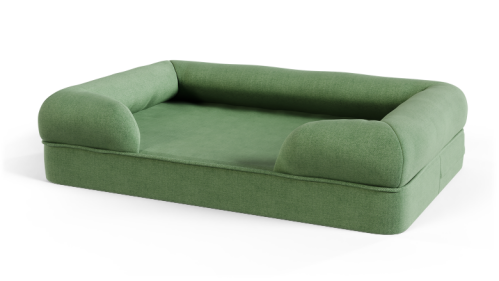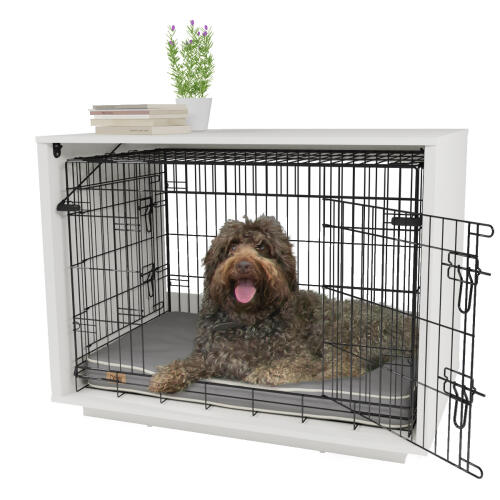Maltesisk hund










History
The exact origin of the Maltese is unknown. They were probably brought to Central Europe by traders via Asia and it is possible that they are related to the Tibetan Terrier. They have been mentioned as early as 300 BC and it is believed that they originated on Malta which was used as a trading port. By the 14th century, Maltese were favoured by upper class ladies in England. The modern day Maltese is perfect for small apartments and for showing.
Behaviour
Maltese are friendly, lively, cuddly dogs who love human attention. They are happiest on your lap and will want to be with you all the time. They are very playful and never seem to grow out of their puppy phase. Perfect within a family, they are child friendly and always happy to play. Early socialisation is important to prevent them from becoming 'snappy' with young children, who can see them as a toy. They are happy running around the house or garden and only really need short walks. They will bark when someone is at the door, but will welcome them in with lots of affection. Some say they bark too much, but this can be addressed with proper training.
Training is relatively easy as they learn quite quickly. Work should focus on socialisation and separation, as they can tend to suffer with anxiety when left alone and could become destructive. A dog best kept as a constant companion, who has a zest for life and will make you laugh. They love sitting on your lap for a cuddle and are more than happy to keep your feet warm too. They generally get on well with other dogs and pets.
The long white coat needs lots of attention if you intend showing, however many owners prefer the 'puppy cut', where the coat is trimmed to 1- 2 " every couple of months. This then just needs regular brushing. Maltese rarely shed their fur, making them ideal for allergy sufferers. Due to the colour of their fur, they do tend to suffer from tear staining around the eyes. Cleaning the area a couple of times a week will prevent this. A solution from the vet can also help. For some reason, Maltese tend to suffer cavities and minor tooth problems. Regular brushing with a soft toothbrush and canine toothpaste (yes, really) will help.
Temperament
The Maltese has a playful and intelligent temperament. One of the most sweet natured toy dogs they will get on ok with other animals but as they are very small it is important that any socialisation is carefully monitored as a larger dog can easily be too boistrous for a little Maltese.
Loyal and loving you must be careful not to over indulge a Maltese or you will end up with a spoiled brat of a dog who will get very jealous of anyone who takes your attention away from them.
Health Problems
Health problems that may affect Maltese include luxating patellar (dislocation of the knee cap), hydrocephalus (fluid build up in skull which puts pressure on the brain), heart disease, eye problems and allergies.
Breed Details
- Status: Common
- Life Expectancy: 12 - 15 years
- Weight: 1.4 - 3.6 kg
- Højde: 8 - 10"
- Rare: Nej
- Coat: Long
- Grooming Requirements: Everyday
- Town or Country: Either
- Minimum Home Size: Flat
- Minimum Garden Size: No Garden
- Breed Type: Toy Dog
- Størrelse: Lille
- Energy Level: Høj
- Exercise Required: Up to 30 Minutes

